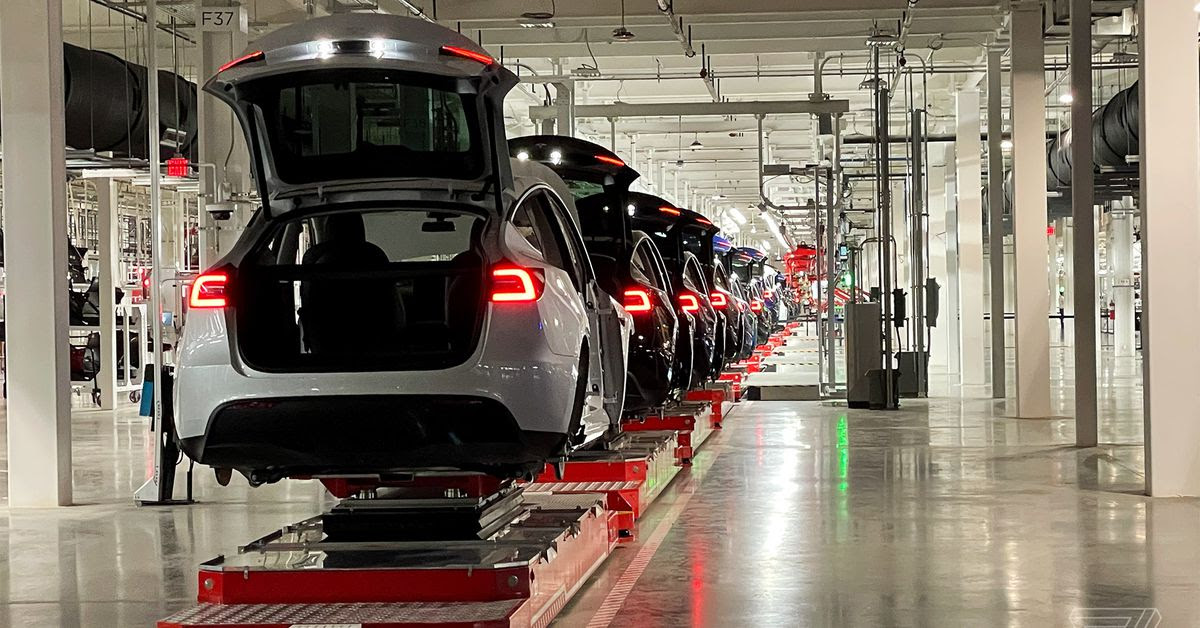Version 12.0

Written & Compiled by Macklin Andrick, GPJ Sr. Creative Technologist
GPJ Experience Technology is your trusted guide through the latest technological shifts and how they might benefit your next experience. Another week, another opportunity to explore some of the weird and wild things going on in the tech world!
Get ready to throw out your Apple lightning cables, Salesforce is letting Einstein GPT across its product suite and Deloitte puts out a report on how manufacturing companies are using the “industrial metaverse”.

Salesforce embeds conversational AI across the platform with Einstein Copilot
Salesforce introduced its AI layer called Einstein back in 2016 to provide predictive AI services across the Salesforce family of products. In March, just months after the release of OpenAI’s ChatGPT, it introduced Einstein GPT to bring the ability to ask questions about the software in natural language across the platform. At last week’s Dreamforce customer conference the company announced the next step in its AI journey, introducing Einstein Copilot, which embeds this ability to ask questions in the context of whatever users are doing, regardless of product. “We are launching Einstein Copilot which is a conversational AI assistant for companies, employees, as well as their customers to securely and safely be able to access generative AI to do their jobs better, faster, more easily, to augment and amplify their own abilities, their skills, their work, be more efficient and be more productive,” Shih told TechCrunch.
Everything Apple Announced at Today’s Event in Six Minutes
Apple held its “Wonderlust” fall event, introducing the iPhone 15, iPhone 15 Plus, iPhone 15 Pro, iPhone 15 Pro Max, Apple Watch Series 9, and Apple Watch Ultra 2. It took Apple an hour and a half to introduce all of the new devices, but here’s a recap of everything in a super quick six minute video for those who want a short but detailed overview of all of the new announcements.


Tesla’s new car-building process could be a huge industrial breakthrough
Tesla is closing in on a new manufacturing process that could significantly reduce costs and increase production of its electric vehicles. According to sources who spoke to Reuters, the new process will enable the automaker to die-cast almost the entire vehicle underbody as a single piece instead of building out about 400 parts using conventional car-building techniques. Tesla’s current process to build its popular Model Y SUV already involves a unique use of massive, ultra-high pressure presses that can mold both the front and rear parts of the vehicle. Tesla calls this process “gigacasting,” which some experts say is already highly efficient and cost-effective compared to other automakers’ factories. Tesla’s secret new technique starts with an updated mold-making process that the sources tell Reuters uses 3D printing and industrial sand. When creating molten metal molds, it can cost millions to make simple tweaks when scaled up to the size of a vehicle, so automakers generally shy away from the option.
Stability AI debuts Stable Audio bringing text to audio generation to the masses
What comes after building generative AI technology for image and code generation? For Stability AI, it’s text-to-audio generation. Stability AI today announced the initial public release of its Stable Audio technology, providing anyone with ability to use simple text prompts to generate short audio clips. Stability AI is best known as the organization behind the Stable Diffusion text-to-image generation AI technology. StableAudio is a new capability, though it is based on many of the same core AI techniques that enable Stable Diffusion to create images. Namely the Stable Audio technology makes use of a diffusion model, albeit trained on audio rather than images, in order to generate new audio clips.


Deloitte Survey Reveals 92% of Manufacturers Leveraging Industrial Metaverse
Deloitte unveiled the results of its Industrial Metaverse Study that explores the integration of the industrial metaverse in the manufacturing sector. As per Deloitte, “the industrial metaverse is the convergence of different technologies that, when combined, can create immersive three-dimensional virtual or virtual/physical industrial environments.” The professional services network asserts that as technology progresses, there is a strong likelihood that the industrial metaverse will facilitate access to these immersive 3D environments from any internet-connected device. This encompasses virtual reality (VR) and augmented reality (AR) devices, as well as smartphones, tablets, laptops and various equipment, regardless of geographical location. The Deloitte study found that 92% of manufacturing companies surveyed are actively experimenting with or implementing various metaverse use cases.
More Cool Stuff We Found
- Chat 2024
- Early Computer Art in the 50’s & 60’s
- This student-built EV just set a new world record for 0–62 mph
- Scientists figured out how to write in water
- Wifi can read through walls
- Ancient Supervolcano in US May Hide Largest Lithium Deposit Ever Found
- Scenimefy: Learning to Craft Anime Scene via Semi-Supervised Image-to-Image Translation
- Transparent peel and stick LED panels
Missed a previous Creative Tech Byte? Find all previous versions here.